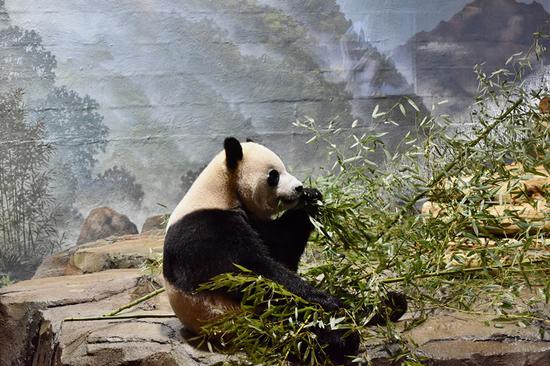China's Ministry of State Security (MSS) on Sunday issued a warning about the environmental risks associated with invasive species. It highlighted that such species may infiltrate China through goods and mail shipments and cautioned against false declarations of product names to bypass customs, as well as the illicit import of exotic pets, including snakes, spiders, and scorpions.
With the booming development of global trade, the cross-border transportation of agricultural products, timber, flowers, and other goods creates opportunities for the spread of alien species across regions, said MSS. It gave an example of the red imported fire ant, native to South America, often hides in imported timber, plants, soil, or packaging materials. Once it arrives in a new environment, the red imported fire ant can reproduce rapidly, forming extensive colonies that significantly disrupt local ecosystems.
The ministry also reported instances of individuals falsely declaring product names to bypass regulations. Recently, customs at an airport in a certain region discovered an anomaly in a shipment declared as an "electric kettle" during their inspection of incoming express mail. Upon opening the cardboard box, customs officers discovered 979 live Messor barbarus ants. This species has strong adaptability and reproductive capacity, posing a significant risk of biological invasion.
Due to a lack of knowledge and insufficient awareness of dangers, some people unknowingly introduced alien species across borders, said the ministry. For example, the Canadian goldenrod was introduced as an ornamental plant due to its beautiful appearance. However, due to its strong reproductive ability and ecological adaptability, allowing It to rapidly spread to other regions significantly disrupts ecological balance and reduces biodiversity.
Moreover, young people are increasingly drawn to "exotic pets," the "exotic pets," which are nontraditional pets that differ from commonly kept animals like cats, dogs, birds, and fish. They mainly include unusual and colorful animals and plants, primarily arthropods (spiders, scorpions, beetles, etc.), reptiles (snakes, lizards, turtles, etc.), amphibians (frogs, salamanders, etc.), and rodents (hamsters, guinea pigs, gerbils, etc).
In just the first quarter of 2024, customs in a certain region intercepted over 200 cases of incoming "exotic pets," such as the Galápagos centipede, long-horned rhinoceros beetle, and shiny burrow scorpion.
The MSS said those species pose risks to ecological security, biological safety, and economic stability.
Invasive non-native species can harm agriculture, deplete forestry and fishery resources, and escalate biological control and management costs. According to authoritative statistics, the direct and indirect losses caused by invasive non-native species in China could reach up to 200 billion yuan ($27.3 billion) annually, with agriculture being the hardest hit sector.
The ministry urged Chinese nationals to adhere to laws and regulations by not privately importing, mailing, or transporting foreign species into the country and refraining from randomly releasing or keeping foreign pets.


















































 京公网安备 11010202009201号
京公网安备 11010202009201号